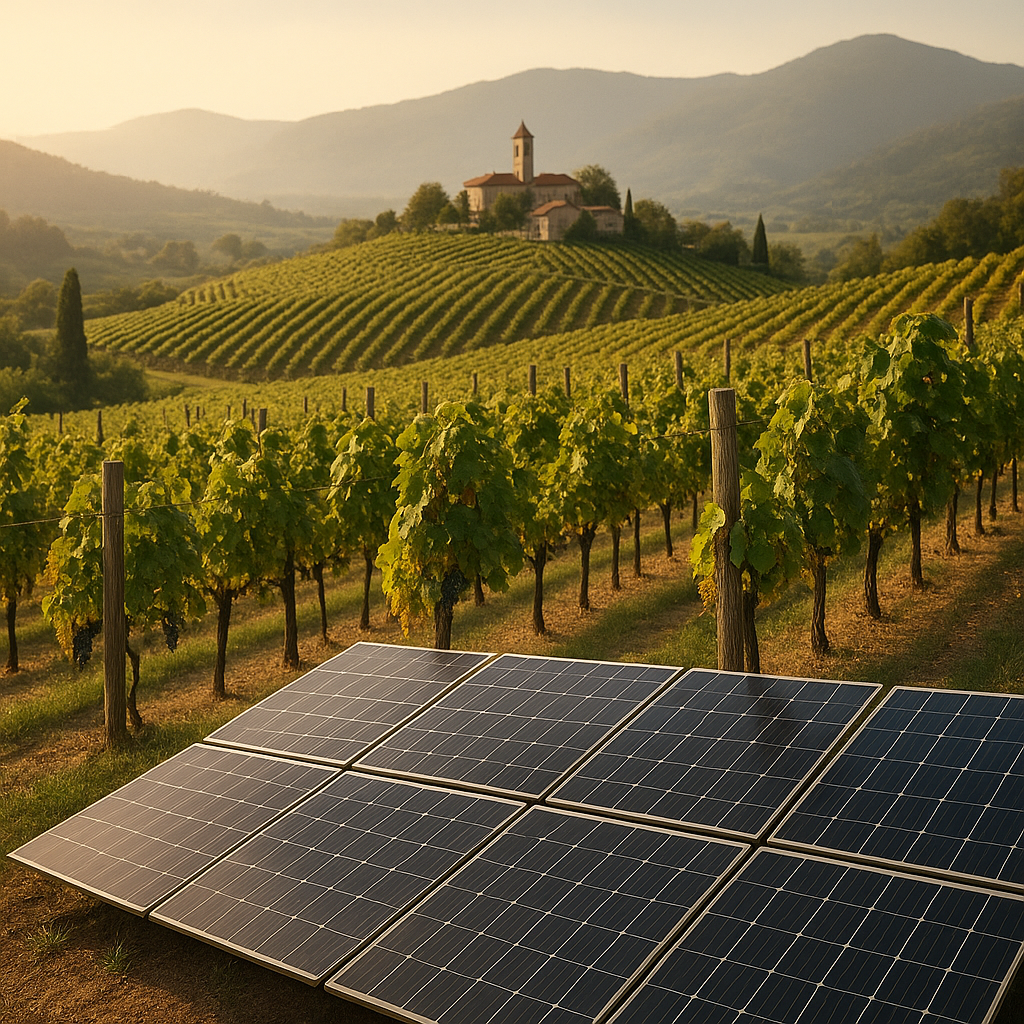
Solar tech aids Slovenian wine sustainability
Share
Introduction to Wine Sustainability in Slovenia
Slovenia, with its picturesque vineyards and rich winemaking tradition, is increasingly embracing sustainability as a core principle in its wine industry. The country’s commitment to environmental stewardship is not merely a trend; it reflects a deep-rooted respect for the land and a desire to preserve its natural beauty for future generations. As climate change poses significant challenges to agriculture worldwide, Slovenian vintners are turning to innovative practices to ensure their wines remain of the highest quality while minimizing ecological impact. This includes adopting organic farming methods, reducing chemical inputs, and enhancing biodiversity within vineyard ecosystems. The integration of solar technology stands out as a pivotal element in this transformation. By harnessing renewable energy, Slovenian wineries are not only cutting their carbon footprints but also setting a benchmark for sustainable practices in the global wine industry. As these initiatives gain traction, they exemplify how tradition and innovation can coexist harmoniously, paving the way for a more sustainable future in winemaking.
Impact of Solar Technology on Vineyards
The integration of solar technology in Slovenian vineyards is transforming traditional practices and fostering sustainability. By harnessing the sun's energy, vineyard owners can power irrigation systems, temperature control, and even processing facilities, significantly reducing their reliance on fossil fuels. This shift not only lowers operational costs but also minimizes the carbon footprint associated with wine production.
Moreover, the use of solar energy allows for more precise management of vineyard environments. Automated systems powered by solar panels can monitor soil moisture and weather conditions, ensuring that vines receive optimal care throughout the growing season. This precision agriculture approach enhances grape quality while conserving water and other resources.
As Slovenian winemakers embrace these innovations, they are not only preserving their heritage but also positioning themselves as leaders in sustainable practices. The ripple effect of this commitment extends beyond the vineyards, inspiring other agricultural sectors to adopt similar technologies, ultimately contributing to a greener future for the entire region.
Future Prospects for Renewable Energy in the Wine Industry
As the wine industry continues to embrace sustainability, the future prospects for renewable energy within this sector appear increasingly promising. Innovations in solar technology are at the forefront, offering wineries the opportunity to significantly reduce their carbon footprints while enhancing their operational efficiency. The integration of photovoltaic systems not only provides a renewable energy source for vineyards but also enables winemakers to power their facilities with minimal environmental impact.
Moreover, advancements in energy storage solutions are set to further revolutionize the industry. By harnessing solar energy during peak sunlight hours and storing it for use during nighttime or cloudy days, wineries can ensure a consistent energy supply, thereby stabilizing production processes. Additionally, the potential for collaboration with local energy providers could lead to more sustainable practices, such as sharing excess energy generated by solar panels.
As consumer demand for eco-friendly products rises, the adoption of renewable energy will likely become a defining characteristic of the wine industry, paving the way for a greener, more sustainable future.
